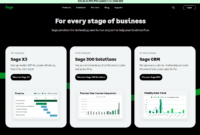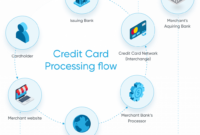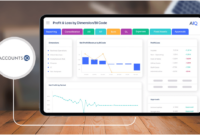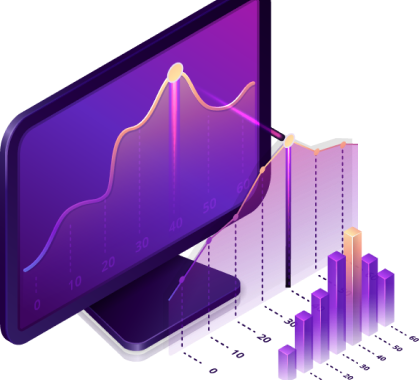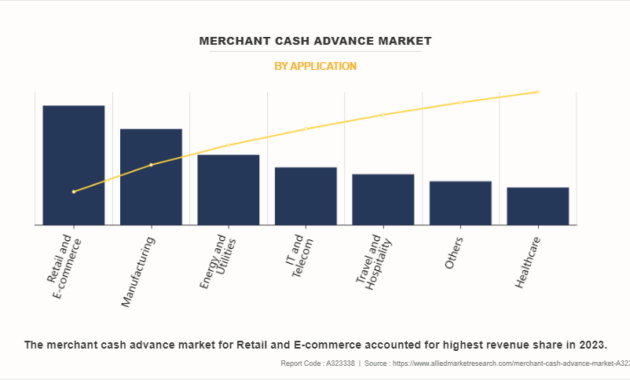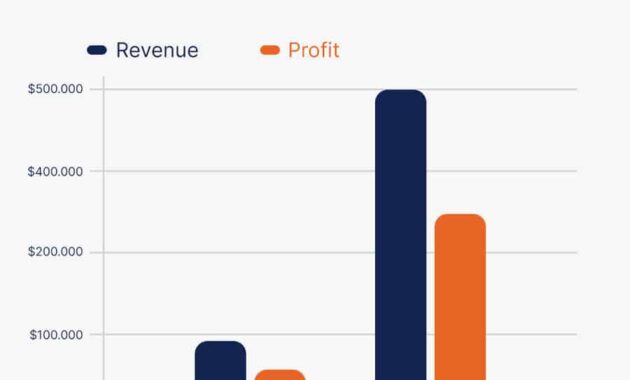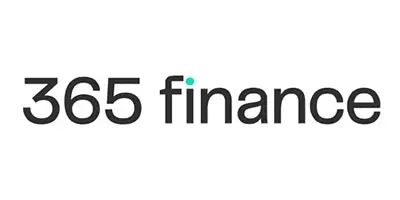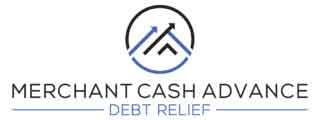Introduction
In the fast-paced and competitive world of today’s construction industry, it’s no longer a matter of if you should invest in accounting software, but rather when. With the right software, small construction businesses can streamline their financial processes, improve accuracy, and gain valuable insights into their operations. One such software is QuickBooks, a comprehensive and user-friendly solution designed specifically for small businesses, including construction companies. In this article, we’ll dive deep into QuickBooks’ features, explore its benefits, and provide a step-by-step guide on how to choose the right accounting software for your small construction business.
QuickBooks is a cloud-based accounting software that offers a wide range of features tailored to the needs of small construction businesses. From invoicing and expense tracking to job costing and project management, QuickBooks has everything you need to manage your finances effectively. It seamlessly integrates with other business applications, such as project management software and payroll services, providing a centralized platform for all your business data. With real-time financial insights and customizable reports, QuickBooks empowers you to make informed decisions and stay on top of your business’s financial health.
Investing in accounting software is not just about automating tasks; it’s about gaining a competitive edge. QuickBooks helps you streamline your financial processes, saving you time and reducing the risk of errors. With accurate and up-to-date financial information at your fingertips, you can make informed decisions about project bidding, resource allocation, and cash flow management. QuickBooks also provides valuable insights into your business’s performance, helping you identify areas for improvement and optimize your operations.
Types of Accounting Software
When it comes to choosing accounting software, there are two main types to consider: desktop software and cloud-based software. Desktop software is installed on your computer and typically requires a one-time purchase. Cloud-based software, on the other hand, is accessed online and requires a subscription fee. Both types of software have their pros and cons, so it’s important to choose the one that best suits your business’s needs.
Desktop software offers the advantage of being installed on your computer, giving you complete control over your data. However, it can be more expensive upfront and requires regular updates. Cloud-based software is more affordable, easier to use, and can be accessed from anywhere with an internet connection. It’s also more secure, as your data is stored in a remote server and backed up regularly.
Features to Look for
When choosing accounting software, there are several key features to look for. These include:
- Invoicing and billing
- Expense tracking
- Job costing
- Project management
- Reporting
- Integration with other business applications
- Ease of use
- Customer support
Depending on your business’s specific needs, you may also want to consider features such as mobile access, inventory management, and payroll processing.
Choosing the Right Software
Choosing the right accounting software can be a daunting task, but it’s important to take the time to find the one that best suits your business’s needs. Here are a few steps to help you get started:
- Identify your business’s needs. What are the most important features you need in accounting software?
- Research different software options. There are many different accounting software solutions available, so it’s important to do your research and compare the different features and pricing.
- Get a demo. Once you’ve narrowed down your options, get a demo of each software to see how it works and if it’s a good fit for your business.
- Read reviews. See what other small construction businesses have to say about different accounting software solutions.
- Make a decision. Once you’ve considered all the factors, make a decision and choose the accounting software that you think will best meet your business’s needs.
Investing in accounting software is an important step for any small construction business. By choosing the right software, you can streamline your financial processes, improve accuracy, and gain valuable insights into your operations. With the right accounting software in place, you can set your business up for success.
Accounting Software for Small Construction Businesses: A Comprehensive Guide
If you’re a small construction business owner, you know that managing your finances can be a challenge. From tracking job costs to invoicing clients, there’s a lot to keep up with. That’s where accounting software comes in. The right software can streamline your financial processes, saving you time and money. But with so many different options available, choosing the right one can be overwhelming.
In this article, we’ll walk you through the key features to consider when choosing accounting software for your small construction business. We’ll also provide a few recommendations to help you get started.
Features to Consider
When choosing accounting software for your small construction business, there are a few key features to keep in mind. These include:
- **Job costing**. Job costing allows you to track the costs associated with each job, including labor, materials, and equipment. This information is essential for profitability analysis and can help you identify areas where you can save money.
- **Progress billing**. Progress billing allows you to bill your clients for work that has been completed but not yet invoiced. This can help you improve your cash flow and avoid late payments.
- **Inventory management**. Inventory management allows you to track the materials and supplies that you have on hand. This information is essential for preventing shortages and ensuring that you have the materials you need to complete your jobs on time.
In addition to these core features, you may also want to consider software that offers additional features, such as:
- **Integration with other business applications**. This can help you streamline your workflow and reduce the risk of errors.
- **Mobile access**. This allows you to access your accounting software from anywhere, so you can stay on top of your finances even when you’re on the go.
- **Customer support**. This is important in case you need help with the software or have any questions.
Recommendations
Now that you know what to look for in accounting software, let’s take a look at a few recommendations. These are some of the most popular and well-reviewed accounting software solutions for small construction businesses:
- ** QuickBooks Online**. QuickBooks Online is a cloud-based accounting software solution that is easy to use and affordable. It offers a variety of features, including job costing, progress billing, and inventory management.
- **Sage 50cloud Accounting**. Sage 50cloud Accounting is a desktop-based accounting software solution that is more powerful than QuickBooks Online. It offers a wider range of features, including job costing, progress billing, inventory management, and integration with other business applications.
- **Xero**. Xero is a cloud-based accounting software solution that is designed for small businesses. It offers a simple and intuitive interface, making it easy to get started. Xero also offers a variety of features, including job costing, progress billing, and inventory management.
Conclusion
Choosing the right accounting software for your small construction business is an important decision. By taking the time to consider your needs and compare different options, you can find a solution that will help you streamline your financial processes, save time and money, and grow your business.
Accounting Software: A Lifeline for Small Construction Businesses
In the cutthroat world of construction, where margins are razor-thin and competition is fierce, small businesses need every edge they can get. And that’s where accounting software comes in. It’s not just a nice-to-have tool; it’s an absolute necessity, a lifeline that can help you streamline operations, improve cash flow, and boost profitability.
Benefits of Accounting Software for Small Construction Businesses
The benefits of accounting software for small construction businesses are vast and far-reaching. Here are just a few ways it can make your life easier and your business more successful:
Streamlines Financial Processes
Accounting software can automate many of the tedious and time-consuming tasks that used to eat up your valuable time. From invoicing and billing to tracking expenses and managing payroll, it can handle it all with ease. This frees you up to focus on more important things, like growing your business.
Improves Cash Flow
One of the biggest challenges for small construction businesses is managing cash flow. With accounting software, you can track your income and expenses in real time, so you always know where you stand. This helps you make informed decisions about when to invest in new equipment or hire more staff. It can also help you avoid costly mistakes, like overspending or missing out on opportunities.
Enhances Project Profitability
Accounting software can help you track the profitability of each project you undertake. By tracking costs and revenue, you can identify areas where you’re losing money and make adjustments accordingly. This can help you improve your margins and increase your overall profitability.
Provides Financial Insights
Accounting software can provide you with valuable financial insights that can help you make better decisions for your business. For example, you can use it to track your sales trends, identify your most profitable customers, and see where you’re spending the most money. This information can help you make informed decisions about how to allocate your resources and grow your business.
Saves Time and Money
Accounting software can save you both time and money. By automating tasks and providing financial insights, it can help you streamline your operations and make better decisions. This can lead to increased efficiency and reduced costs.
Reduces the Risk of Fraud
Accounting software can help reduce the risk of fraud by providing you with a clear and accurate record of all your financial transactions. This makes it more difficult for employees to steal money or commit other types of financial crimes.
Choosing the Right Accounting Software Solution
With so many different accounting software solutions on the market, choosing the right one for your small construction business can be a daunting task. Here are a few things to keep in mind when making your decision:
Your Business Needs
The first step is to identify your specific business needs. What features are important to you? How many users will need access to the software? What is your budget? Once you have a clear understanding of your needs, you can start narrowing down your options.
Ease of Use
Accounting software should be easy to use, even for those who don’t have a background in accounting. Look for a solution that is intuitive and user-friendly. You should also make sure that the software provides adequate training and support.
Cost
Accounting software can range in price from free to thousands of dollars per month. The cost will depend on the features you need and the number of users. It’s important to find a solution that fits your budget without sacrificing quality.
Integration with Other Software
If you use other software applications, such as a CRM or project management system, you’ll want to make sure that your accounting software integrates with them. This will allow you to share data between applications and streamline your workflow.
Customer Support
Good customer support is essential for any software solution. Make sure that the vendor provides timely and helpful support when you need it.
Conclusion
Accounting software is an essential tool for any small construction business. It can help you streamline operations, improve cash flow, and boost profitability. When choosing an accounting software solution, it’s important to consider your specific business needs, ease of use, cost, integration with other software, and customer support. By choosing the right solution, you can set your business up for success.
The Foundation of Financial Success: Accounting Software for Small Construction Businesses
In the realm of construction, where precision and efficiency reign supreme, accounting plays a pivotal role. It’s the bedrock upon which financial stability and growth are built. For small construction businesses, selecting the right accounting software is a decision fraught with significance.
Navigating the Accounting Software Landscape
The intricate world of accounting software presents a diverse array of options, each tailored to specific needs. From cloud-based solutions that soar through the digital realm to on-premise systems that reside within the confines of your hardware, the choices are as varied as the projects you undertake.
Types of Accounting Software
1. Cloud-Based Software: A Symphony of Accessibility and Agility
Cloud-based accounting software, like a nimble acrobat, dances gracefully across the internet, offering unparalleled accessibility. With a simple click, you can manage your accounts from anywhere in the world, whether perched atop a skyscraper or navigating the labyrinthine streets of a construction site. This software’s agility allows you to seamlessly switch devices, providing the flexibility you need to keep pace with the ever-changing construction landscape.
2. On-Premise Software: The Guardian of Control and Customization
On-premise accounting software, akin to a fortress, stands firmly within the confines of your local hardware. It grants you complete control over your data, safeguarding it from the vagaries of the internet. This software offers the flexibility to customize it to the unique nuances of your business, allowing you to sculpt a tool that fits your needs like a tailored suit.
3. Spreadsheet-Based Software: A Familiar Haven for Numerical Wizards
Spreadsheet-based accounting software, the digital incarnation of the humble spreadsheet, empowers you with familiarity and simplicity. Its intuitive interface allows you to harness the power of spreadsheets to manage your accounts, making it a comfortable choice for those accustomed to the spreadsheet’s charms.
4. Feature-Packed Software: A Multifaceted Tool for Construction’s Challenges
Construction-specific accounting software, a veritable Swiss Army knife for your financial needs, goes beyond the realm of basic accounting. It seamlessly integrates project management, time tracking, and billing functions, providing a comprehensive solution that addresses the unique demands of the construction industry.
a. Cost Control: A Compass in the Financial Labyrinth
Construction projects are often a labyrinth of expenses, and cost control is the compass that guides you through this financial maze. Construction-specific accounting software empowers you with real-time visibility into your project costs, enabling you to identify areas for optimization and ensure your projects remain on track financially.
b. Project Management: Unifying the Threads of Complexity
Construction projects are intricate tapestries woven from multiple strands. Construction-specific accounting software integrates project management capabilities, allowing you to orchestrate tasks, manage timelines, and coordinate resources seamlessly. This unified approach ensures that all aspects of your projects are aligned, avoiding costly delays and ensuring timely completion.
c. Time Tracking: Unraveling the Enigma of Time
In construction, time is money, and tracking it accurately is essential for profitability. Construction-specific accounting software streamlines time tracking, providing you with detailed insights into how time is spent on each project. This empowers you to optimize your workforce, identify inefficiencies, and ensure that every minute is accounted for.
d. Billing: A Symphony of Precision and Efficiency
Billing in construction can be a complex dance of invoices and payments. Construction-specific accounting software automates this process, ensuring accuracy and efficiency. It generates professional invoices, tracks payments, and provides real-time visibility into your receivables, allowing you to maintain a healthy cash flow and avoid costly billing errors.
5. Selecting the Right Software: A Journey of Discovery
Choosing the right accounting software is like selecting the perfect tool for a delicate task. The best software for you will depend on your unique needs and circumstances. Consider the size of your business, the complexity of your projects, your budget, and your team’s technical proficiency.
Don’t hesitate to consult with experts, read reviews, and explore demos to find the software that aligns perfectly with your vision for financial success. Remember, accounting software is not just a tool; it’s a strategic partner in your quest for growth and profitability. Invest wisely, and you’ll reap the rewards for years to come.
Construction Accounting Software: The Essential Toolkit for Small Businesses
Navigating the intricacies of construction accounting can be a daunting task for small businesses. That’s where the right accounting software comes in as your trusty guide, helping you manage finances, simplify operations, and stay organized. From tracking expenses to generating invoices and managing payroll, the perfect software can streamline your processes and give you peace of mind.
In the vast landscape of accounting software, choosing the right one for your small construction business is paramount. It’s like finding the perfect pair of shoes – you need something that fits your needs and won’t cause you blisters. To make your selection process easier, we’ve outlined the key factors to consider, from evaluating features to assessing customer support. So, grab a cup of coffee and let’s dive into the world of accounting software!
Choosing the Right Software
When it comes to selecting the right accounting software for your small construction business, it’s not a one-size-fits-all situation. You need to assess your specific requirements and find a solution that aligns with them like a glove. Consider the following key factors to make an informed decision:
- Features: Identify the essential features you need, such as project tracking, expense management, invoicing, and payroll processing. Ensure the software offers the functionality that matches your business’s workflow.
- Cost: Determine your budget for accounting software and compare the pricing plans of different options. Consider upfront costs, monthly subscriptions, and any additional fees.
- User-friendliness: The software should be easy to navigate and use, even if you’re not an accounting expert. Look for an intuitive interface and clear instructions to minimize the learning curve.
- Customer support: Choose software backed by reliable customer support that can assist you promptly when you encounter any issues. Check the availability of support channels, such as phone, email, and live chat.
Top Accounting Software Options for Small Construction Businesses
Now that you know what to look for, let’s explore some of the top accounting software options tailored for small construction businesses. Each of these offers a unique set of features and benefits to meet your specific needs:
- Sage 50cloud Contractor: Designed specifically for construction businesses, Sage 50cloud Contractor offers robust features for project management, cost tracking, and financial reporting. It seamlessly integrates with other Sage products to extend its functionality.
- QuickBooks Online: A popular choice for small businesses, QuickBooks Online provides a user-friendly platform for managing finances, including invoicing, expense tracking, and tax preparation. Its mobile app allows you to stay organized on the go.
- Xero: Known for its cloud-based nature, Xero offers real-time financial data and collaboration tools. Its intuitive interface and bank reconciliation features make it a breeze to use.
- Acumatica Construction Edition: Tailored for the construction industry, Acumatica Construction Edition provides advanced project management capabilities, including budgeting, change orders, and subcontractor management.
- Jonas Premier: A comprehensive solution for construction businesses, Jonas Premier offers a wide range of modules, from accounting and project management to HR and CRM.
Key Features to Look for in Construction Accounting Software
Beyond the basic features, there are certain key capabilities that can significantly enhance the efficiency and effectiveness of accounting software for small construction businesses:
- Project Tracking: Manage multiple construction projects simultaneously, track progress, and monitor costs to stay on top of project timelines and budgets.
- Expense Management: Easily record and categorize expenses, attach receipts, and streamline the reimbursement process to ensure accurate expense tracking.
- Invoicing: Create professional invoices quickly, track payments, and manage customer accounts to maintain a steady cash flow.
- Payroll Processing: Manage employee payroll, calculate taxes, and generate paychecks efficiently to ensure timely payments and compliance with labor laws.
- Reporting: Generate financial reports, such as balance sheets, income statements, and cash flow statements, to gain insights into your business’s financial performance.
- Integration: The ability to integrate with other software, such as project management tools, CRM systems, and payment gateways, can streamline your workflow and enhance data accuracy.
Benefits of Using Accounting Software for Small Construction Businesses
Investing in accounting software can provide numerous benefits for small construction businesses, including:
- Improved Accuracy: Automated accounting processes minimize errors and ensure the accuracy of financial data.
- Increased Efficiency: Streamlined workflows and automated tasks save time and reduce the burden of manual accounting.
- Enhanced Control: Centralized financial data provides a clear view of your business’s financial health and allows for better control over expenses and cash flow.
- Improved Decision-Making: Accurate and timely financial data empowers you to make informed decisions that drive business growth.
- Compliance: Accounting software helps ensure compliance with tax and financial reporting requirements.
Conclusion
Choosing the right accounting software is a critical decision for small construction businesses. By carefully evaluating your needs, considering the key features, and exploring the available options, you can find a solution that empowers you to manage your finances effectively, streamline operations, and make informed decisions. Remember, accounting software is not just a tool – it’s an investment in the success and growth of your business.
Accounting Software for Small Construction Businesses: The Ultimate Guide
As the cornerstone of the construction industry, small businesses can often find themselves buried in a sea of financial paperwork. From tracking expenses to managing invoices, staying on top of the books can be a daunting task. That’s where accounting software steps in, serving as a lifeline for small construction businesses looking to streamline their financial operations.
In this comprehensive guide, we’ll delve into the world of accounting software, exploring its benefits, key features, and the best options available for small construction businesses. So, grab your hard hats and let’s dive into the financial realm!
Benefits of Accounting Software
Investing in accounting software is not merely an expense; it’s a strategic investment in the financial health of your small construction business. Here are a few key benefits to consider:
- Streamlined Financial Management: Imagine having all your financial data at your fingertips, organized and accessible with just a few clicks. Accounting software automates many time-consuming tasks, freeing up your time for more important business decisions.
- Improved Accuracy: Manual accounting can be error-prone, leading to costly mistakes. Accounting software eliminates human error by performing calculations and reconciliations automatically, ensuring accuracy and reliability.
- Enhanced Cash Flow Management: Knowing where your money is going and when it’s coming in is crucial for any business. Accounting software provides real-time visibility into your cash flow, helping you make informed decisions and avoid financial surprises.
- Increased Efficiency: Time is money, especially in the fast-paced world of construction. Accounting software automates repetitive tasks, allowing you to allocate your resources more efficiently and focus on growing your business.
Key Features to Look For
When choosing accounting software for your small construction business, it’s important to consider specific features that will meet your unique needs. Here are some key features to look for:
- Job Costing: Track the costs associated with each construction project, including labor, materials, and equipment.
- Project Management: Manage projects from start to finish, tracking progress, deadlines, and expenses.
- Invoicing and Billing: Create and send invoices quickly and easily, allowing you to get paid faster.
- Reporting and Analytics: Generate financial reports and analyze data to make informed decisions and identify areas for improvement.
- Mobile Accessibility: Manage your finances on the go with mobile-friendly accounting software, giving you real-time access to your data from anywhere.
Top Recommendations
The construction industry is a diverse field, and there’s no one-size-fits-all accounting software solution. We’ve compiled a list of top recommendations to help you find the best fit for your small construction business:
- QuickBooks Online: A popular choice for small businesses, QuickBooks Online offers a range of features tailored to construction, including job costing and project management.
- Sage Business Cloud Accounting: Another reputable option, Sage Business Cloud Accounting provides robust job cost tracking, customizable reports, and advanced analytics.
- Xero: Known for its user-friendliness and cloud-based platform, Xero offers a comprehensive suite of accounting features, including invoicing, expense management, and project tracking.
- Buildertrend: Specifically designed for the construction industry, Buildertrend combines accounting software with project management tools, providing a seamless solution for small construction businesses.
- Jonas Premier: A powerful enterprise-level solution, Jonas Premier offers advanced job costing, project scheduling, and inventory management capabilities.
Conclusion
Investing in accounting software can transform the financial management of small construction businesses. By streamlining tasks, improving accuracy, enhancing cash flow, and increasing efficiency, accounting software empowers you to make informed decisions, grow your business, and stay on top of your finances in the ever-changing construction landscape. So, don’t hesitate to embrace the power of accounting software and elevate your small construction business to new heights of financial success.
